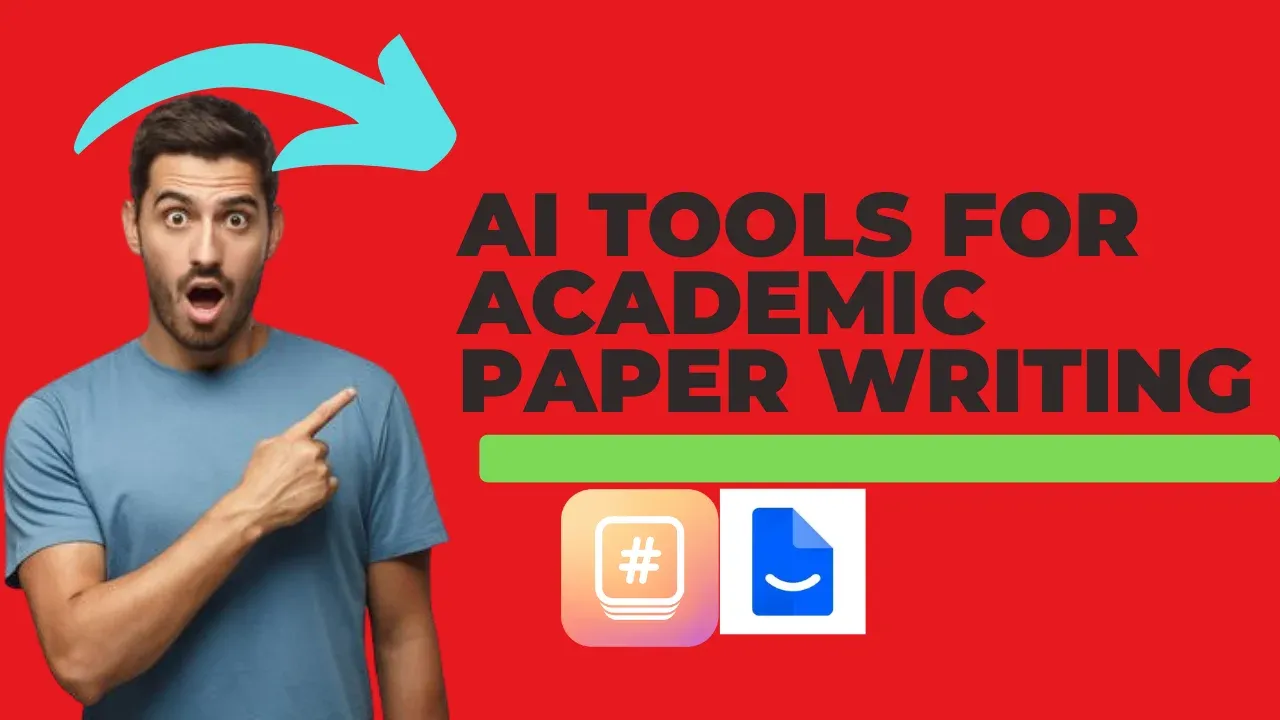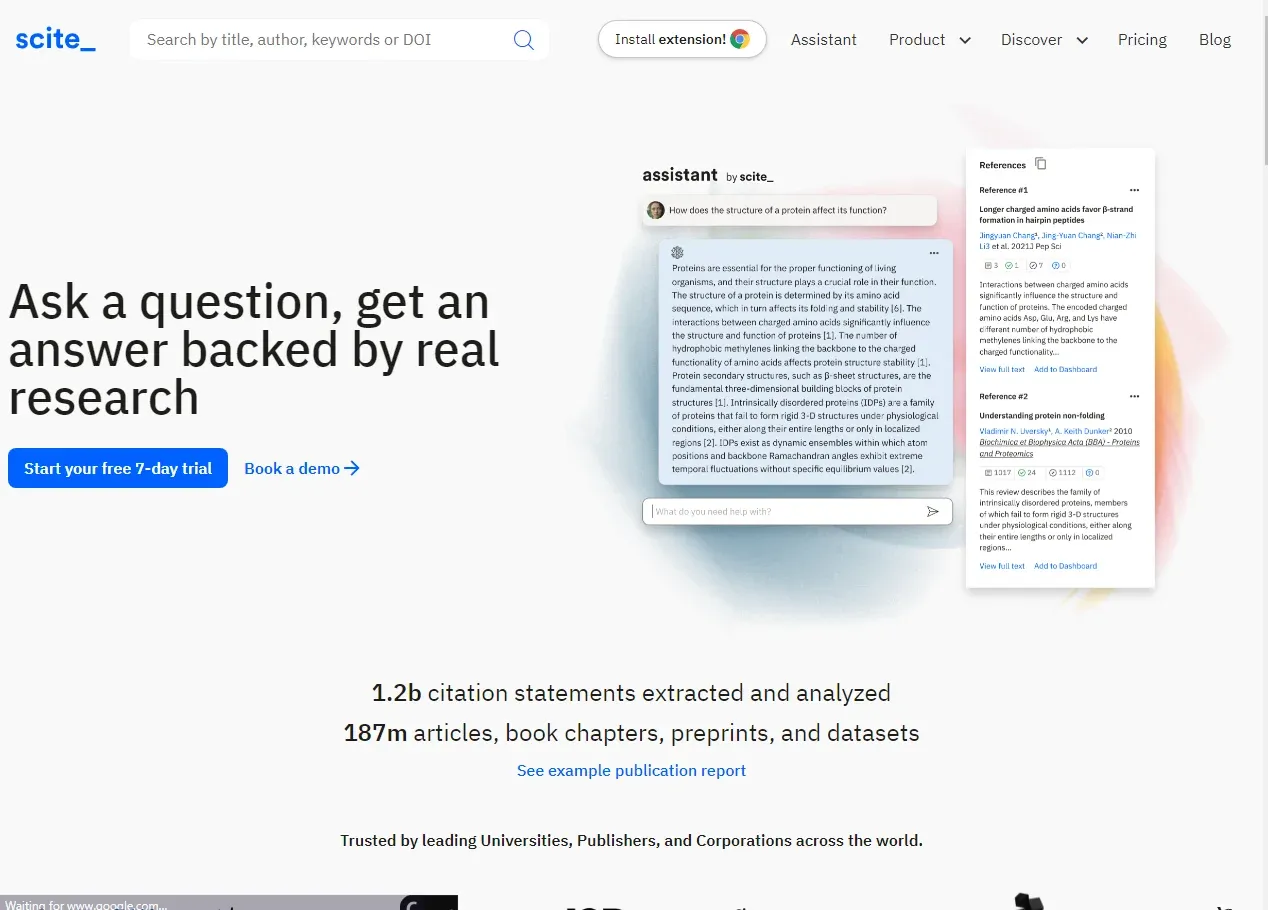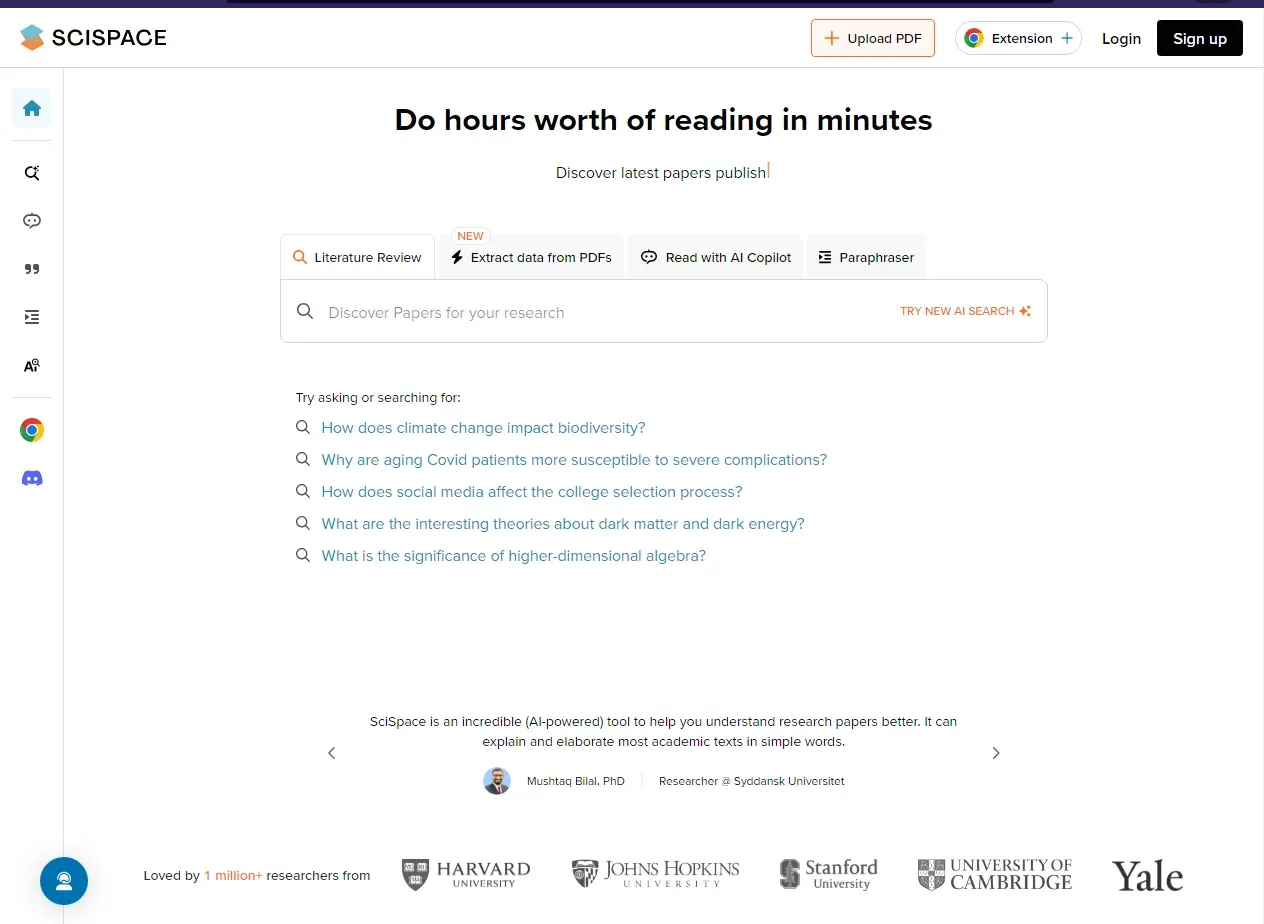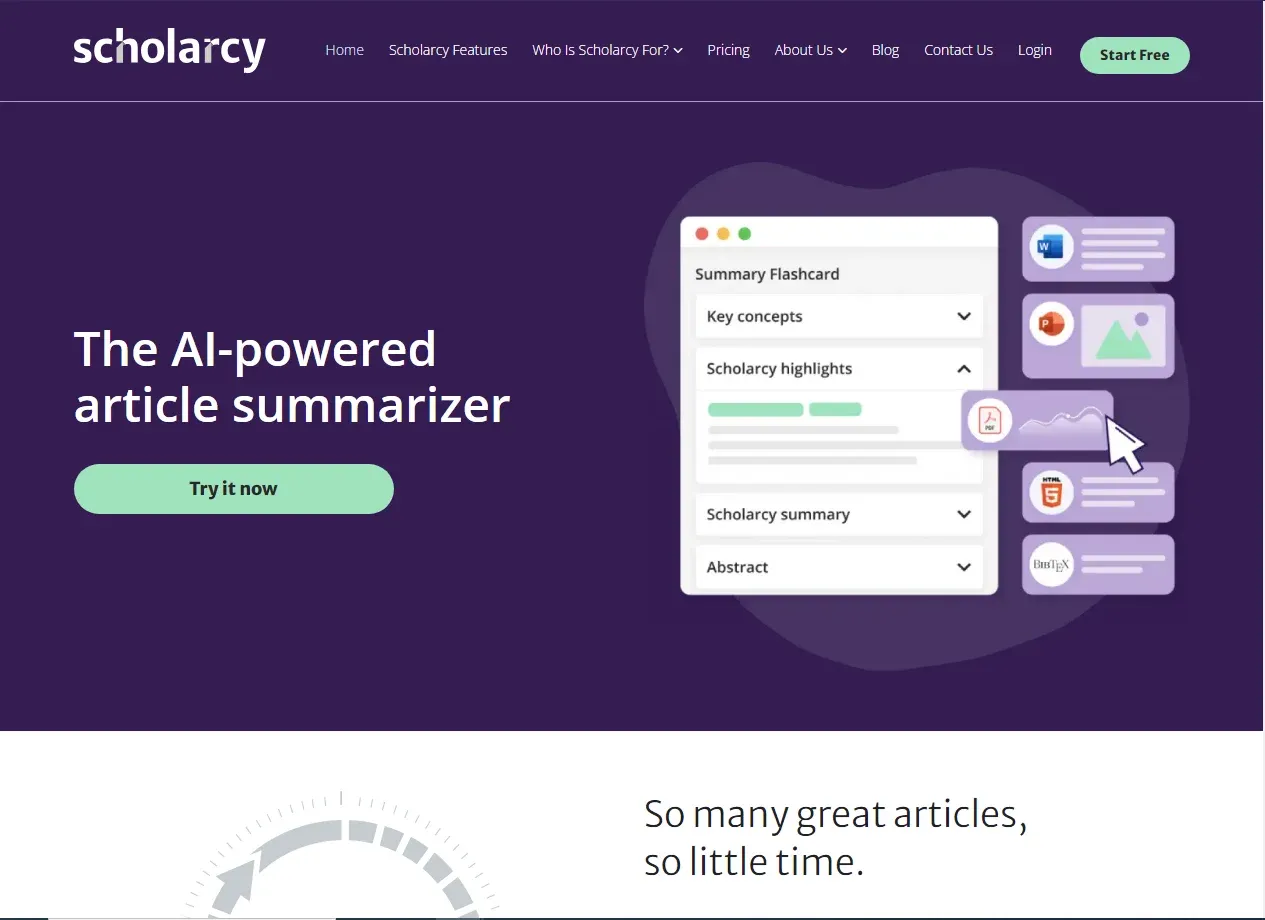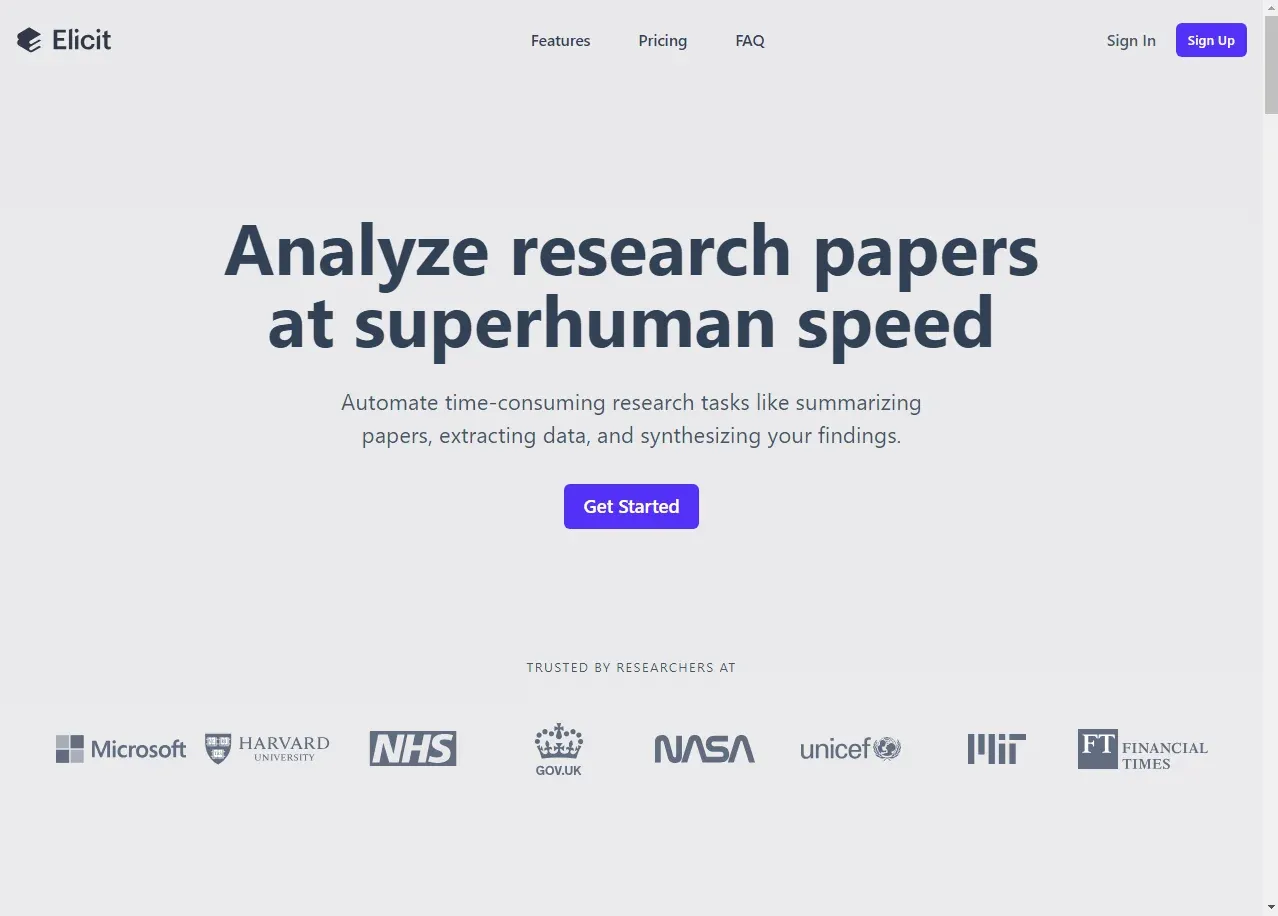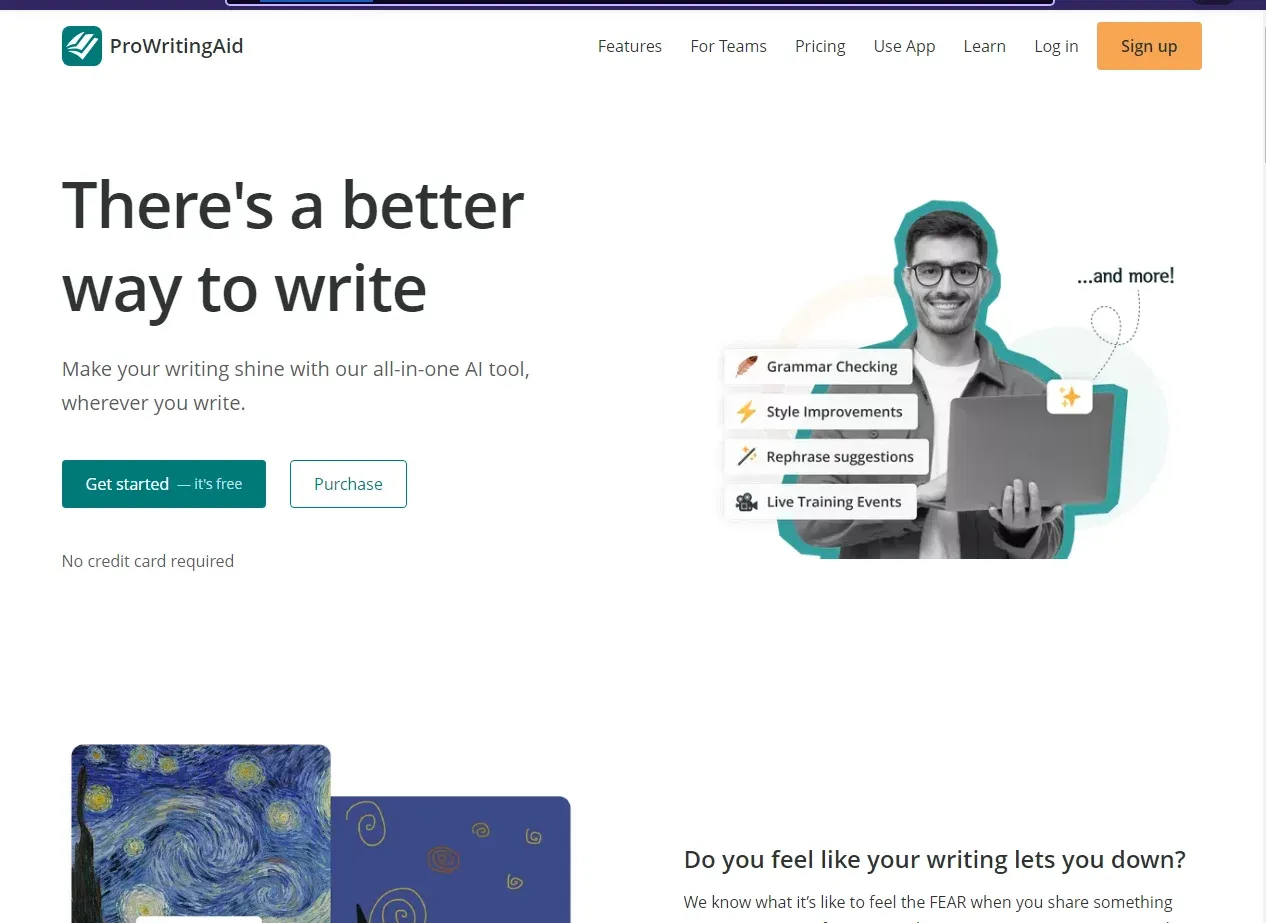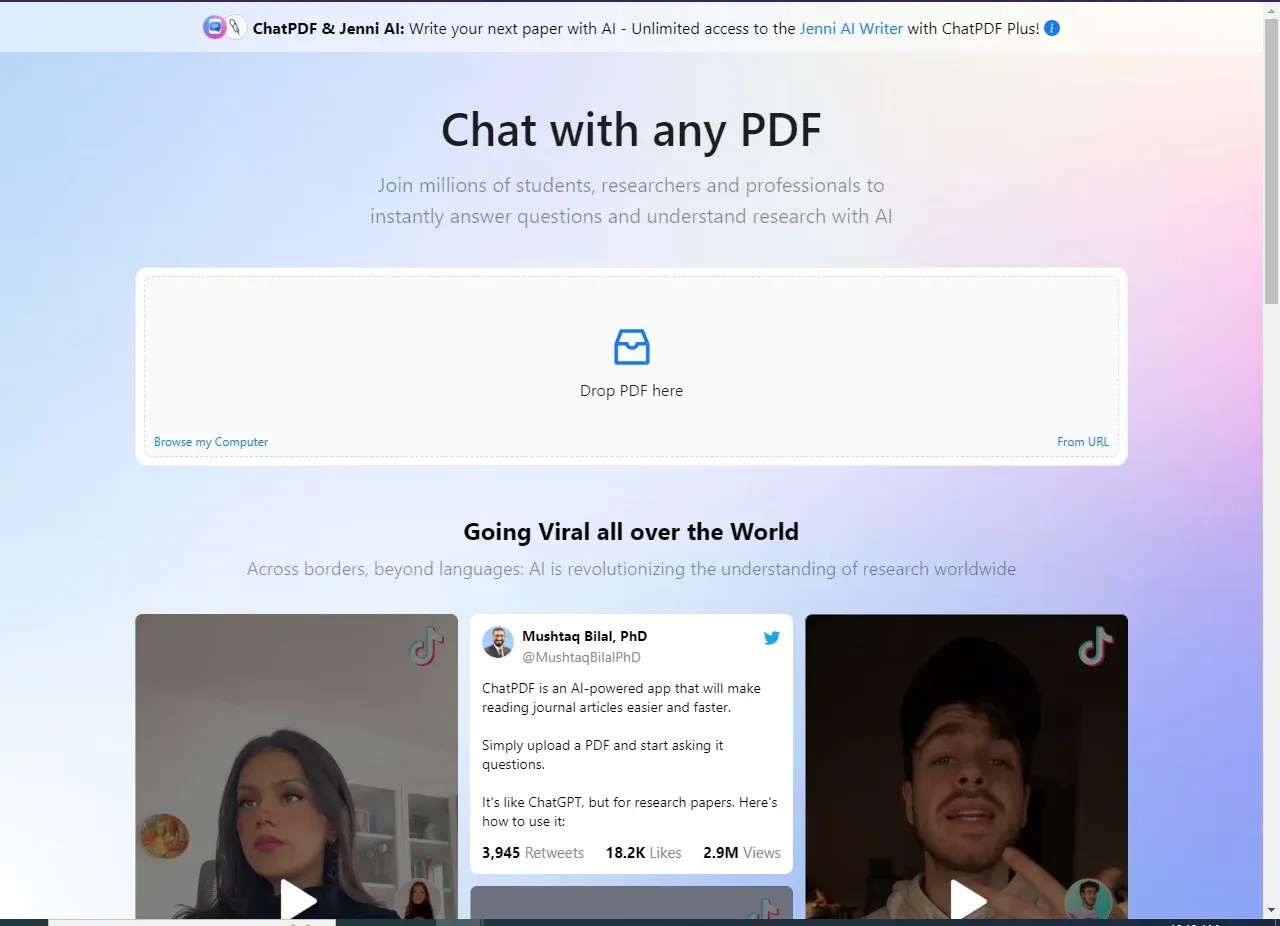Are you tired of staring at a blank screen, struggling with academic paper writing? & Ever find yourself stuck when writing academic papers? It's a common problem for every academic paper writer. But worry not, We've got a solution that's as easy as pie.
So in this blog post, We will talk about about 10 best ai tools for Research Paper Writing & also which one Ai tool is best for Research Paper Writing Free?. Say goodbye to writer's block and hello to smoother academic writing.
10 Best Ai Tools For Academic Papers Writing?
Research got you in a headlock? Feeling trapped in a literature labyrinth? Don't fret, fellow academics. AI is here to be your research wingman, and we've compiled the top 10 tools to turn you into a writing superhero.
- Scite
- SciSpace
- Scholarcy
- Consensus
- Elicit
- QuillBot
- ProWritingAid
- OpenRead
- ChatPDF
- Casper Ai
What Tools are needed in Writing an Academic Paper Effectively?
Choosing the right AI writing assistant can feel like picking a flavor of ice cream in a world of overflowing tubs. Don't worry, I'm here to scoop out the key details on 10 popular options, simplifying your search like a cherry on top.
1. Scite:
This AI whiz helps you polish your research papers to academic perfection. Imagine Grammarly on steroids for scientific writing.
Pricing:
Free basic plan, paid plans for advanced features.
Pros:
- Citations galore
- Plagiarism check
- Formatting magic
- Even helps structure your research
Cons:
- Limited creative writing options
- Mainly focused on academia.
Give your research the scholarly shine it deserves with Scite's free plan.
2. SciSpace:
Say goodbye to writer's block. SciSpace generates engaging scientific content for websites, blogs, and more.
Pricing:
Free trial, then paid plans.
Pros:
- Tailored to science communication
- Creates different content formats
- Even translates languages
Cons:
- Not ideal for in-depth academic writing
- Pricing can be hefty for personal use.
Take your science outreach to the next level with SciSpace's free trial!
3. Scholarcy:
This scholarly sidekick tackles citations, bibliographies, and even reference formatting like a champ.
Pricing:
Free basic plan, paid plans for advanced features.
Pros:
- Citation powerhouse
- Automates tedious formatting tasks
- Integrates with research tools.
Cons:
- Limited writing assistance beyond citations
- Focus is on organization, not creativity.
Free your mind from citation woes with Scholarcy's basic plan!
4. Consensus:
Need help brainstorming research topics or summarizing complex papers? Consensus is your AI sounding board.
Pricing:
Free trial, then paid plans.
Pros:
- Excellent for research ideation and summarization
- Collaborative features for group projects.
Cons:
- Not a full-fledged writing assistant
- Limited creative writing capabilities.
Spark brilliant research ideas with Consensus's free trial!
5. Elicit:
Stuck on the perfect introduction or conclusion? Elicit crafts captivating openings and closings for any type of writing.
Pricing:
Free basic plan, paid plans for advanced features.
Pros:
- Master of beginnings and endings
- Generates different writing styles, offers feedback on your own drafts.
Cons:
- Doesn't handle full-length writing
- Mainly focused on specific text sections.
Give your writing the perfect hook and farewell with Elicit's free plan!
6. QuillBot:
This AI wordsmith rephrases sentences, paragraphs, and even entire articles, keeping your meaning intact.
Pricing:
Free plan with limited features, paid plans for more options.
Pros:
- Powerful paraphrasing tool
- Avoids plagiarism
- Offers different writing styles.
Cons:
- Not focused on original content creation
- Can change the tone or meaning of your writing.
Rephrase, rewrite, and rejuvenate your text with QuillBot's free plan!
7. ProWritingAid:
This grammar guru goes beyond typos, catching stylistic errors and suggesting improvements for clarity and conciseness.
Pricing:
Free trial, then paid plans.
Pros:
- Comprehensive grammar and style checker
- Offers reports on overused words and cliches
- Integrates with popular writing software.
Cons:
- Mainly focused on editing existing text
- Limited creative writing capabilities.
Polish your prose to perfection with ProWritingAid's free trial!
8. OpenRead:
Need help summarizing articles or extracting key points from dense text? OpenRead is your AI Cliff Notes.
Pricing:
Free basic plan, paid plans for advanced features.
Pros:
- Excellent summarization tool
- Extracts main ideas from various sources
- Offers different reading modes.
Cons:
- Not a writing assistant
- Mainly focused on text analysis and comprehension.
Get the gist of any text with OpenRead's free plan!
9. ChatPDF:
This AI summarizer condenses lengthy PDFs into bite-sized summaries, perfect for busy bees!
Pricing:
Free plan with limited features, paid plans for more options.
Pros:
- Tailored for PDF summarization
- Highlights key points, offers different reading lengths.
Cons:
- Not a general writing assistant
- Limited functionality beyond summarizing PDFs.
Conquer those hefty PDFs with ChatPDF's free plan!
10. Casper Ai:
This AI long-form writer tackles blog posts, articles, and even scripts, breathing life into your initial ideas. Think of it as your collaborative story-spinning buddy!
Pricing:
Free trial, then paid plans.
Pros:
- Generates different content formats
- Outlines and structures your writing
- Offers multiple writing styles.
Cons:
- Can be unpredictable in tone and length
- Requires careful editing and shaping.
Unleash your inner storyteller with Casper Ai's free trial.
Which AI Tool is Best for Academic Paper Writing?
Choosing the "best" AI tool for academic paper writing depends on your specific needs and priorities. However, based on the tools we discussed, here are some strong contenders and why they might be a good fit for you:
1. Scite:
- Strengths: Deeply focused on academic writing, excels in citation management, formatting, and plagiarism checking, offers language assistance and research organization tools.
- Ideal for: Researchers and students who need comprehensive support for all aspects of academic writing, especially citation accuracy and formatting.
2. Scholarcy:
- Strengths: Citation powerhouse, automates formatting tasks, integrates with research tools, offers citation suggestions and reference management.
- Ideal for: Researchers and students who struggle with citations and formatting, looking for a tool to streamline organization and reference management.
3. Elicit:
- Strengths: Master of introductions and conclusions, generates different writing styles, provides feedback on your own drafts.
- Ideal for: Researchers and students who need help crafting strong opening and closing sections for their papers, seeking feedback on their writing style.
4. ProWritingAid:
- Strengths: Comprehensive grammar and style checker, identifies overused words and cliches, integrates with popular writing software.
- Ideal for: Researchers and students who want to polish their existing writing, improve clarity and conciseness, and catch stylistic errors.
Don't hesitate to try out free plans and demos to see which tool feels most comfortable and effective for you
Conclusion
Ditch the writer's block and conquer those academic papers! With a diverse toolbox of AI companions, like Scite for citation mastery or Elicit for captivating openings, you can streamline your research journey and write with confidence. Explore free plans, experiment, and find the perfect AI wingman to polish your prose and make your academic writing shine. Remember, AI is your partner, not your replacement. Use it wisely, unleash your creativity, and watch your research blossom into stellar scholarly works.
FAQ
Q1. Is using AI for academic writing plagiarism?
Not necessarily! AI tools can be invaluable for research organization, grammar and style checks, and even generating ideas. However, it's crucial to cite any AI-generated content properly and use your own critical thinking to analyze and paraphrase the output. Remember, AI is your assistant, not your replacement.
Q2. What are the best free AI tools for academic writing?
Here are a few top contenders, each with unique strengths:
- Scite: This citation powerhouse automates formatting, checks plagiarism, and guides your research structure. Ideal for mastering academic conventions.
- Scholarcy: Say goodbye to tedious reference formatting! Scholarcy streamlines citations and bibliographies, freeing you to focus on your research.
- Elicit: Craft captivating introductions and conclusions with Elicit's AI writing magic. It generates different writing styles and provides feedback on your drafts.
- ProWritingAid: Polish your prose to perfection with this comprehensive grammar and style checker. It identifies overused words, cliches, and suggests clarity improvements.
- OpenRead: Need to condense dense texts or grasp key points from research articles? OpenRead is your AI Cliff Notes, summarizing complex information into bite-sized chunks.
Q3. Can AI tools help me with research ideas?
Absolutely! Tools like Consensus and QuillBot can spark creative brainstorming by suggesting related topics, rephrasing research questions, and even generating outlines. Remember, AI can't magically conjure a groundbreaking thesis, but it can be a valuable brainstorming partner.
Q4. Do I need to pay for all the best AI writing tools?
Fortunately, most tools offer generous free plans with essential features. This allows you to experiment and find the perfect fit before committing to paid subscriptions. Take advantage of trial periods and explore free options before making any purchasing decisions.
Q5. Can AI tools write my entire paper for me?
While AI can generate text and even format references, it should never be a substitute for your own critical thinking and writing skills. Remember, academic writing requires your unique perspective, analysis, and argumentation. Use AI as a helpful tool, not a crutch.
Q6. Will AI tools make my writing sound robotic?
The good news is, you control the writing style! Most AI tools offer options to adjust formality, tone, and voice. Don't be afraid to experiment and find the style that best suits your academic voice.
Q7. How can I ensure my paper is original with AI help?
Always double-check any AI-generated content for plagiarism using tools like Turnitin or Grammarly's plagiarism checker. Remember, it's your responsibility to ensure the originality of your work.
Q8. Will AI make academic writing easier?
Definitely! AI tools can streamline tedious tasks, improve grammar and clarity, and even spark creative ideas. However, the hard work of research, analysis, and argumentation still lies with you. Think of AI as a productivity booster, not a shortcut to academic success.
Q9. What are some ethical considerations when using AI for academic writing?
Always be transparent about your use of AI tools. Cite any AI-generated content properly and avoid misrepresenting AI output as your own work. Remember, academic integrity is paramount.
Q10. Where can I learn more about using AI for academic writing?
Many universities and online resources offer guidance on using AI tools ethically and effectively in academic writing. Look for workshops, tutorials, and blog posts from reputable sources to hone your AI writing skills.
